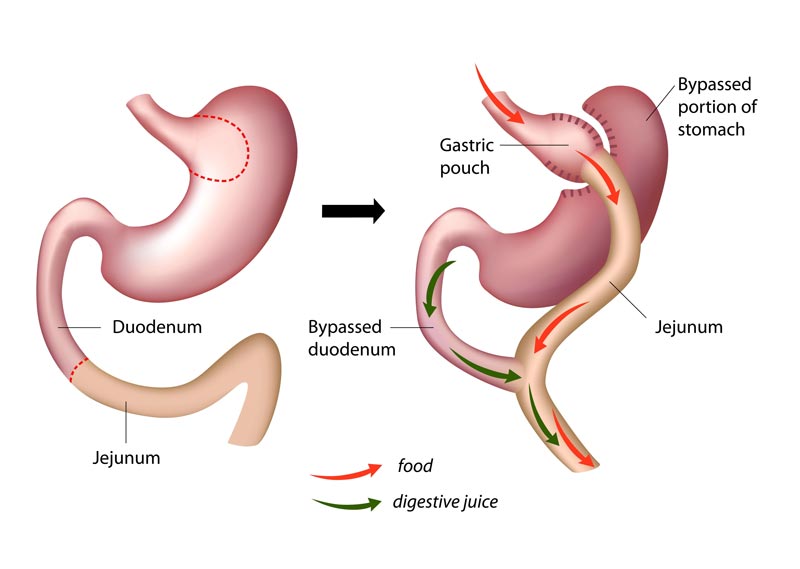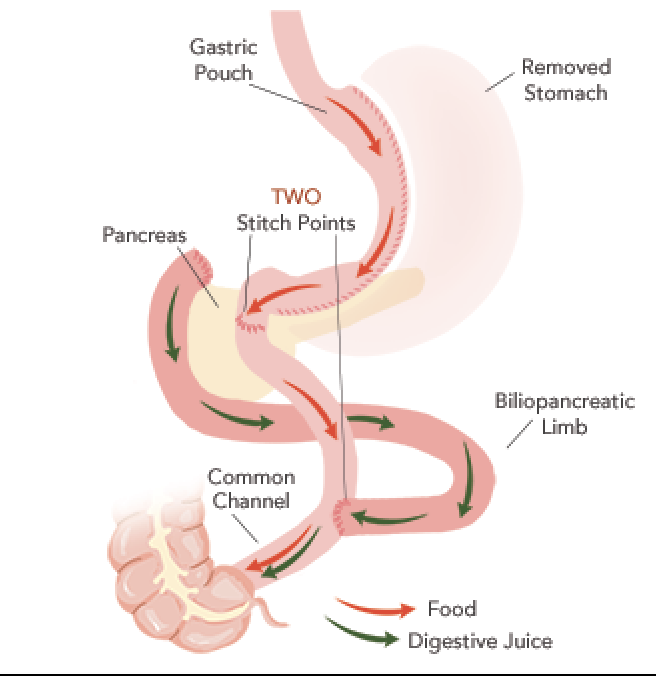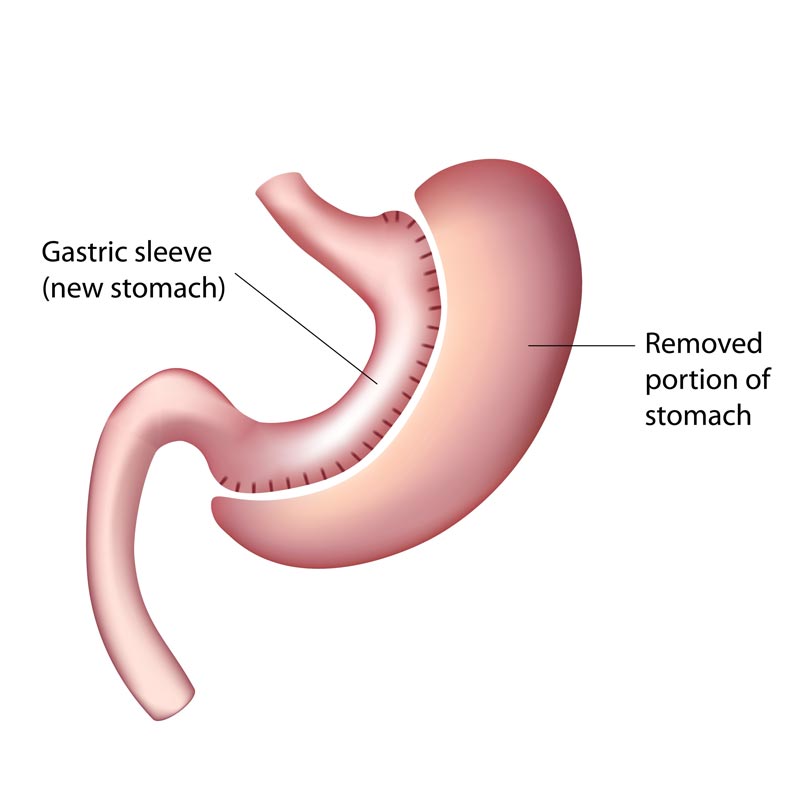Our surgeons are experienced in a range of bariatric surgery procedures including gastric bypass surgery, laparoscopic duodenal switch, and gastric sleeve surgery, allowing us to choose the right approach for you. Most surgeons will perform bariatric surgery using the laparoscopic method whenever possible; however, this is a decision that you and your doctor must make together.
Roux-en-Y gastric bypass
In Roux-en-Y gastric bypass, the surgeon creates a small pouch at the top of the stomach. The pouch is the only part of the stomach that receives food. This greatly limits the amount that you can comfortably eat and drink at one time.

Sleeve gastrectomy
In a sleeve gastrectomy, part of the stomach is separated and removed from the body. The remaining section of the stomach is formed into a tubelike structure. This smaller stomach cannot hold as much food. It also produces less of the appetite-regulating hormone, ghrelin, which may lessen your desire to eat. However, sleeve gastrectomy does not affect the absorption of calories and nutrients.
Duodenal switch
As with sleeve gastrectomy, this procedure begins with the surgeon removing a large part of the stomach. The valve that releases food to the small intestine is left, along with the first part of the small intestine, called the duodenum. The surgeon then closes off the middle section of the intestine and attaches the last part directly to the duodenum. This is the duodenal switch.

Revisions
A small number of patients who have weight loss surgery relapse years later. How much depends on the procedure they originally had to address their obesity. These individuals may benefit from an additional procedure, called revision surgery, to help them lose again and treat specific symptoms.
If you find yourself struggling with weight loss or one or more obesity-related health conditions, bariatric surgery could be right for you.

